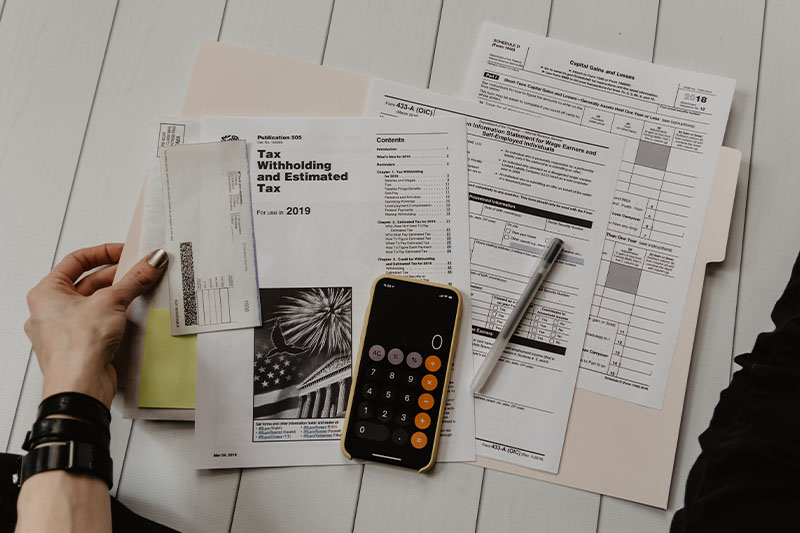Starting your own business can involve lots of decisions, not least figuring out whether you should be a sole trader or a company. We chat through the pros and cons – and the tax implications – to help you make an informed decision.
Deciding the type of business structure that you want should be the first decision that you make. The reason is that this will determine the decisions and actions you take thereafter. One option for many in Australia is to become a sole trader – but is that right for you and how can you decide?
The Pros and Cons of Being a Sole Trader
The advantages include:
• Quick, easy, and less expensive to set up and operate
• You have full control of your business
• There are fewer reporting requirements
• You will have less paperwork, government interference, and regulations
• Any losses may be offset against other income earned
• You do not have to pay payroll tax, superannuation contributions, or worker’s compensation
• You are not required to disclose your profits to the public
• It is an easy business structure to change
On the downside:
• You have unlimited liability so both business and personal assets are at risk
• You are liable to pay tax on all income
• There is little opportunity for tax planning.
The issue of unlimited liability is a BIG one! One way to reduce the possibility of being destroyed financially by a third-party claim is to take out public liability insurance that will help you with the potentially huge damages and legal expenses involved if you lose a case. You need to do this before you begin working. Public Liability Australia compares insurance companies online with quotes sent straight to your inbox. Click here to start protecting your business!

The Sole Trader
This business structure suits people such as plumbers, accountants, hairdressers, bookkeepers, electricians, freelancers of various kinds, and consultants. These individuals often:
• Do not have a lot of money to invest
• Can handle all the work on their own
• Enjoy full responsibility or being their own boss
• Are likely to continue to do this work until they retire
• Do not wish to grow the business or take on staff
The Company
These individuals or teams have different goals and requirements:
• Growth of various kinds is the goal from the outset
• Loans, investment, and partners are or will be involved
• The individual(s) want an entity that is separate from him/her/them
• The business is more product/service than person/personality driven

Key Factors to Consider Before You Become a Sole Trader
1. Is a big investment needed?
No 🡪 Sole Trader
Yes 🡪 Company
2. Do you want full control of the business?
No 🡪 Company
Yes 🡪 Sole Trader
3. Are speed and ease of startup important?
No 🡪 Company
Yes 🡪 Sole Trader
4. Is it important to keep business and personal assets separate?
Yes 🡪 Company
No 🡪 Sole Trader
5. Are you willing to take 100% liability and responsibility?
No 🡪 Company
Yes 🡪 Sole Trader
6. Are you comfortable with profits being taxed as personal income?
No 🡪 Company
Yes 🡪 Sole Trader
7. Are you planning to expand nationally and or internationally?
Yes 🡪 Company
No 🡪 Sole Trader
8. Do you want to sell or hand over the business at some point?
Yes 🡪 Company
No 🡪 Sole Trader
9. Do you want to list the business eventually and sell stocks/shares?
Yes 🡪 Company
No 🡪 Sole Trader
Another factor to keep in mind is that it is not difficult to transition from being a sole trader to becoming a company. You cannot, on the other hand, move from being a company to a sole trader.

How to Set up as a Sole Trader
There are very few steps involved which is one of the advantages of becoming a sole trader:
1. Apply for an Australian Business Number (ABN)
You can complete the form online with the Australian Business Register (ABR). It is easy and quick and should only take about 30 minutes. And yes, you must have an ABN.
Once you receive your number you can use it for all your business transactions and activities. In fact, if you do not provide your ABN on your invoices, your customers are obliged to withhold 46.5% of payment!
2. Register a business name
You and your business are in effect one and the same thing: a single entity. You can give your business a name or simply use your legal name. For example, a business might be registered under the name “Peter Smith” or “Peter’s Plumbing”. Whatever you decide, a name that is descriptive, memorable, and catchy is best.
Check on the National Names Index that nobody has already used the name. If the name is available, lodge your application with the Australian Securities and Investments Commission (ASIC).
3. Link your name and the business name
You need to supply your business name and ABN to the Australian Tax Office (ATO). This is necessary before you submit your next tax return.
4. Register for Goods and Services Tax (GST)
You are required to register if your business generates an income of AUD 75,000 or more.
Sole Traders & Tax
As a sole trader, you are fully responsible for paying any tax that is due. Because you and your business are considered a single entity, you pay tax as an individual. Your tax return is under your personal Tax File Number. If you do not have a TFN you need to get one as soon as possible!
Your return will declare all earnings and detail legitimate, allowable business-related deductions (that you can substantiate if necessary). Once you have been operating your business for a year, you have the option to pay quarterly Pay as you Go (PAYG) instalments towards the anticipated tax amount at the end of the tax or financial year.
Conclusion
Once you have determined that being a sole trader suits you and the nature of your business you can take the steps to register. Obtain your ABN, register your business name, link it to your name with the ATO, and then launch your business!
Related Articles
5 Tips to Turn Your Side Hustle Into a Successful Business
7 Business Tips You Should Learn from COVID-19
Risk in Business: The Fundamental Ways Entrepreneurs Manage Risk




